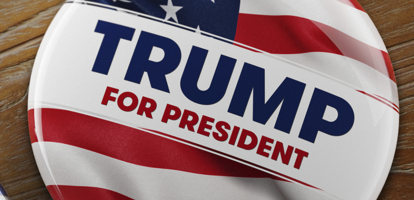Published in the Toronto Star.
It is critical for Canadians to have a conversation now about the prospect of a second Trump presidency. While the decisions of any U.S. president reverberate in Canada, Trump’s world view and governing style could wreak havoc on our politics and economy.
We have three major concerns for Canada with a Trump presidency as we outlined in the latest Regent Debate hosted by the C.D. Howe Institute: Damage to the Canadian economy, geopolitical security and a sinister, insidious deterioration of our discourse and democracy.
Conrad Black and former New Jersey governor Chris Christie argued the other side in the debate — that a Trump return was an opportunity for Canada — and it was a spirited discussion, but we did not leave sharing Black and Christie’s optimism.
The policies Trump advocates, particularly his love of tariffs and tax cuts, funded by borrowing, carry huge economic risks. While these risks are going to be felt globally, Canada and Mexico are particularly vulnerable.
We are not protected by the CUSMA (NAFTA 2.0), a deal negotiated during the first Trump administration, only because he threatened to tear up NAFTA. It took immense effort just to salvage what we could of the critical trade arrangement.
The agreement is up for renewal in 2026, thus providing an opportunity for new demands to be made by the administration, not to mention Congress. To be clear, Canada faces the strong likelihood that it will not be renewed, regardless of a Republican or Democratic president, as anti-trade sentiment is strong throughout the US. But we are confident that a Harris presidency would at least listen to reason and engage in adult negotiations.
And Canada’s leverage? Unlike earlier negotiations for the original FTA (when the U.S. needed our energy) and NAFTA, when Mexico was brought in, and even for the CUSMA when, thanks to a major Canadian effort, many state legislators understood the importance of trade with Canada — we have lost leverage.
Ironically, the key issues that anger the Americans — both Republican and Democrat — are our dismal record on defence and Arctic sovereignty spending; our supply management system for dairy, poultry and eggs; and our new digital tax that the Americans say target only U.S. companies. All are issues that Canada should be fixing for its own sake, not because of U.S. pressure. But the threat from south of the border should be focusing our minds.
U.S. demands, from any government, will be difficult for any Canadian government to meet. But if they are driven by Trump, with the rapacious views of Robert Lighthizer, who negotiated CUSMA as Trump’s Trade Representative and could possibly become U.S. Secretary of Commerce if Trump is re-elected, they could prove disastrous. Lighthizer told Canadian business leaders in Calgary in May that “I’m coming for you.”
And remember that while CUSMA was under negotiation, President Trump introduced tariffs on Canadian steel and aluminum, on bogus grounds of national security, and only removed them well after the deal was signed.
Trump is impulsive, unpredictable and transactional — incapable of seeing that a united North America is in a better position to compete with Europe and Asia than is the U.S. alone. There is no win-win with Donald Trump: In any negotiation where he has the upper hand, he wins.
His policies of tax cuts, less regulation and higher tariffs could lead to a serious drain of investment dollars from Canada to shelter behind Trump’s protectionist walls.
There is no question Canada needs to up its economic game — we have much to do to bring back our slacking prosperity, to attract the critical investment needed to improve our productivity and our GDP. That will take time, but we must. We just don’t need devastating Trump economics to force us.
Now is the time for the federal government, provinces and businesses to be working together to make the case for North America, not only with the future administration, but with Congress, states and big city mayors as well.
A second Trump term would also bring risks to global security and to NATO as an alliance. There’s no question Canada needs to spend more on defence and should do so particularly in the north, where we now find ourselves with a melting ice cap, a hostile Russian neighbour and China’s growing ambitions.
But doing so will not mitigate the risk that Trump will fulfil his oft-made threat to leave the alliance altogether and to “tell Russia to do whatever the hell they want” to NATO allies that don’t meet the 2-per cent target for defence spending.
Some Trumpsters say, “he doesn’t really mean it, he talks that way for effect.” Maybe, but NATO’s effectiveness is predicated on deterrence. Deterrence demands not only military capability, but also that your adversary believes in your willingness to use it.
Trump is an unprincipled, vain and crude man, who has no ability to self-filter and has exacerbated the “vulgarization” of politics. He has normalized lying, cheating, bullying and misogyny to the point that it is seeping into Canadian political conversations.
In short, Donald Trump is a clear and present danger to the democracy of our only neighbour — and therefore to us. We may choose our friends, but we do not choose our neighbours. We have no vote. We have no power to change his behaviour. We can only hope we do not get him as the next U.S. president.
John Manley is a senior fellow with the C.D. Howe Institute and former Deputy Prime Minister of Canada, while Martha Hall Findlay is director of the School of Public Policy at the University of Calgary.





